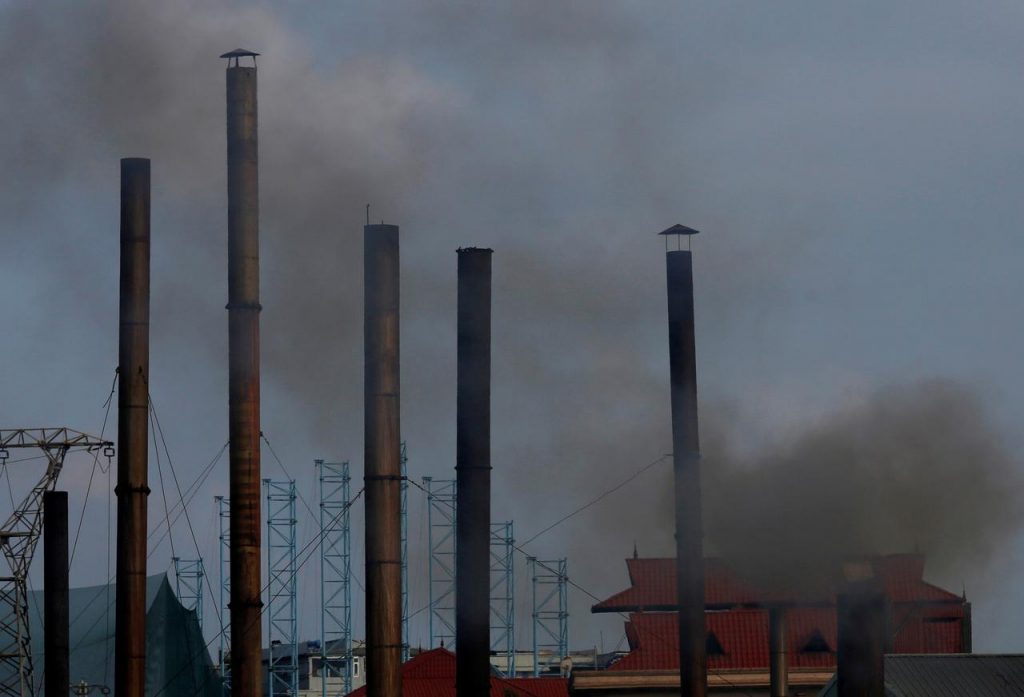Reducing global air pollution may prevent over three million premature deaths annually worldwide, particularly in India, Africa and China, according to a study.
The World Health Organization (WHO) calls air pollution the greatest environmental risk to human health. About 90 percent of related deaths take place in low and middle-income countries, most of them in Southeast Asia and the Pacific.
“There is a sense that if you’re developing economically it doesn’t mean that you have to live in a city where you can’t breathe the air,” Dechen Tsering, the Asia-Pacific director of the U.N. Environment program, had earlier said at an event on the future of sustainable development.
“There is also a growing sense that there are technologies, there is financing (to help),” said Tsering, adding that the region was a key battleground in the fight.
The most significant contribution would be the rapid phasing out of fossil fuels, which is currently being discussed mainly to abate climate change, said researchers led by the Max Planck Institute for Chemistry in Germany.

The study, published in the journal Proceedings of the National Academy of Sciences (PNAS), used a global atmospheric chemistry and climate model, linked to the latest estimates of health effects in order to study the combined impact of decarbonisation on public health, precipitation and the climate.
The researchers calculated that fossil fuel generated emissions are responsible for about 65 per cent of premature deaths from human-made air pollutants worldwide.
Polluted air significantly elevates the risk of cardiovascular and respiratory diseases.
It was recently found that the health burden of fine particulate matter is exceedingly high, said Professor Richard Burnett of Health Canada, who is the co-author of the study.
Phasing out the use of fossil fuels would therefore prevent more than three million premature deaths annually worldwide, researchers said.
“If all sources of air pollution from human activities could be eliminated, that number would further rise to more than five million per year,” added Professor Andy Haines from the London School of Hygiene and Tropical Medicine, who is also a co-author of the study.
Reduced air pollution would not only have a positive effect on human health but would also influence the climate.
Although a global phase-out of fossil fuels would decisively slow down the increase in atmospheric CO2, the current level of around 400 parts per million (ppm) in the atmosphere would not diminish anytime soon.

For this reason, a global phase-out of fossil fuels would even lead to a short-term global temperature increase of about 0.5 degrees Celsius.
It is still possible to limit warming to two degrees, researchers said.
“The rise in temperature resulting from the removal of pollution particles from the air can be tempered by a simultaneous reduction of the greenhouse gases methane, ozone and hydrofluorocarbons in the troposphere,” said Professor Veerabhadran Ramanathan of the University of California in San Diego, US, who co-authored the study.
Methane, ozone and hydrofluorocarbons are much shorter-lived than carbon dioxide, but they have a particularly strong near-term impact on the climate.
Their reduction would therefore have a direct cooling effect, whereas the climate impact of the longer-lived CO2 will last for centuries.

Less particulate matter in the atmosphere and the consequent increase in sea surface temperature, will increase evaporation from the oceans.
This would result in more rainfall in several regions plagued by drought, researchers said.
The effect is particularly pronounced in monsoon regions and could help improve food security and access to water for people in parts of Africa, notably the Sahel, Central America, northern China and India, they said.
The main implication of the study is that fossil fuel phase-out is a major opportunity not only to slow down climate change, but also to significantly improve the health of people from around the world.

With inputs from Agencies






































